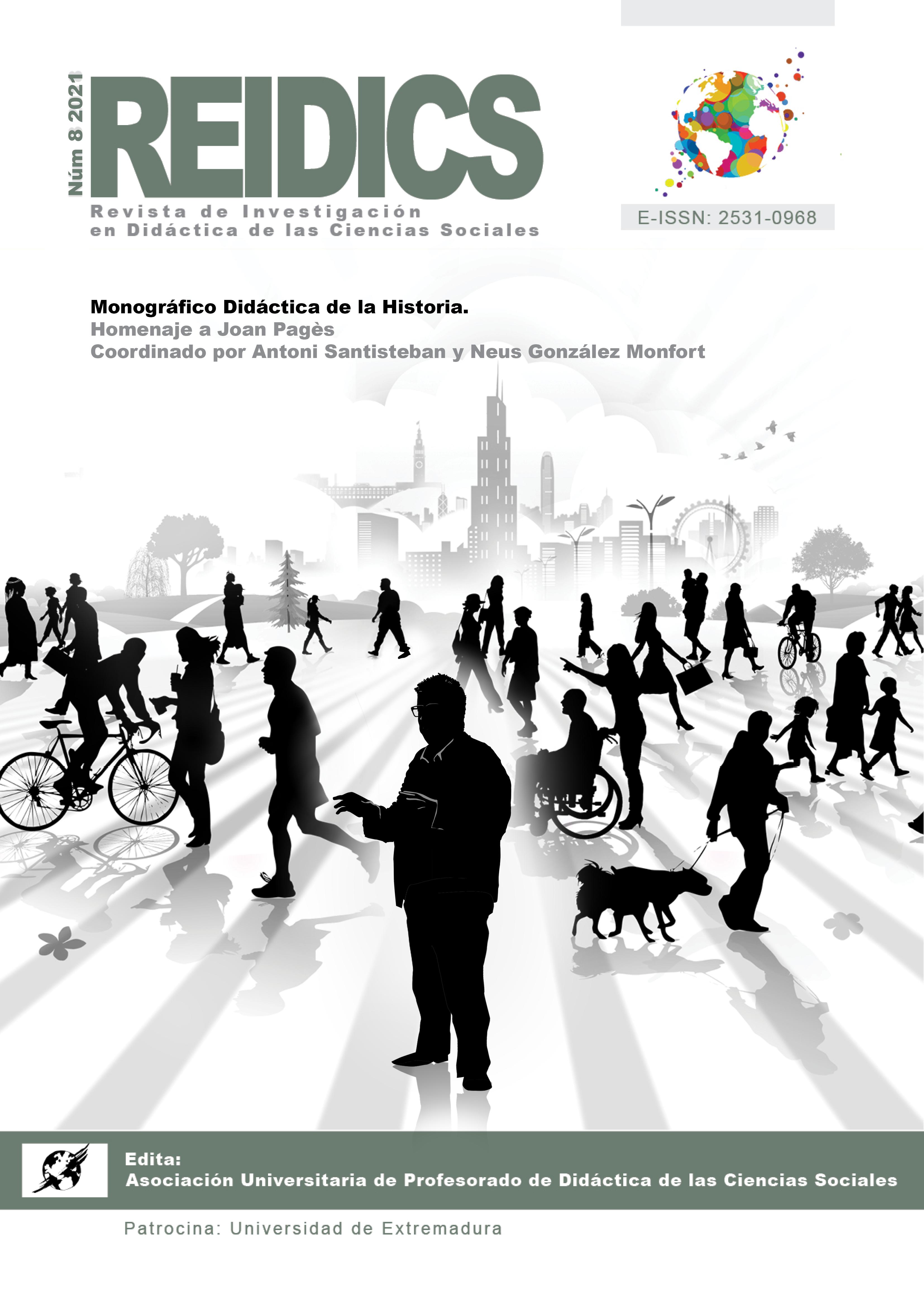Historical thought, social problems and digital culture in the teaching of history
DOI:
https://doi.org/10.17398/2531-0968.08.156Keywords:
historical thought, digital culture, social problems, social representations, historyAbstract
In this work we present a case study carried out with two groups of students -a 4th. and a 5th. year- of public schools of the secondary level in the province of Neuquén, in the Argentine North-Patagonia. We have approached a relevant and burning social problem to identify to what extent it contributes to the development of historical thought or, in other words, if the student body thinks historically about social problems. The results indicate that although it is important to take into account temporary operators such as change and continuity, in a way that allows their historical understanding, with the use of sources of information or necessary evidence, Social Representations play a role of It is of great importance that if they are not addressed throughout the teaching and learning process, they can generate a difficulty for the realization of the objectives pursued. In our critical qualitative research, we built a didactic sequence with the use of digital devices that allowed us to obtain the information and data necessary for the analysis. It was developed in a pandemic context that challenged us in its reformulation -because it was initially thought to be worked on in person- and to think about how the students would respond to the development of the proposed activities, with the use of digital devices, in the virtuality. The following is the analysis of the results achieved in this investigative process.
Downloads
Published
Issue
Section
License
Aquellos autores/as que tengan publicaciones con esta revista, aceptan los términos siguientes:
- Los autores/as conservarán sus derechos de autoría y garantizarán a la revista el derecho de primera publicación de su obra, el cual estará simultáneamente sujeto a la Licencia de reconocimiento de Creative Commons 4.0 BY-NC-SA que permite a terceros compartir la obra siempre que se indique su autor y su primera publicación en esta revista.
- Los autores/as podrán adoptar otros acuerdos de licencia no exclusiva de distribución de la versión de la obra publicada (p. ej.: depositarla en un archivo telemático institucional o publicarla en un volumen monográfico) siempre que se indique la publicación inicial en esta revista.
- Se permite y recomienda a los autores/as difundir su obra a través de Internet (p. ej.: en archivos telemáticos institucionales o en su página web) antes y durante el proceso de envío, lo cual puede producir intercambios interesantes y aumentar las citas de la obra publicada. (Véase El efecto del acceso abierto).
- Los autores y autoras han respetado la política de autoría de esta revista.







